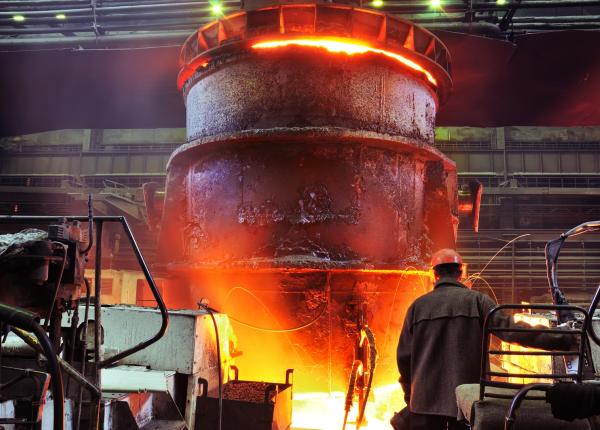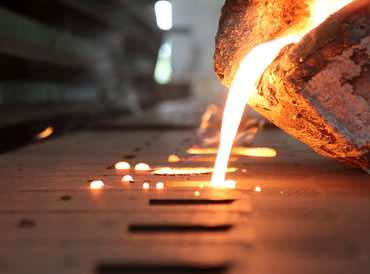Explore How Aluminum Foundry Experts Create Precision Components for Industry
Understanding Metal Casting Processes: Advancements and Fads in the Foundry Industry
The foundry market is experiencing considerable transformations driven by technological improvements. Innovations such as 3D printing and fabricated knowledge are reshaping steel casting processes, improving efficiency and precision. Lasting methods are getting grip, stressing the relevance of environmental obligation. In enhancement, the introduction of sophisticated products and automation is boosting total casting top quality. These developments recommend a critical change in the industry, questioning regarding future directions and ramifications for makers.
Improvements in 3D Printing for Metal Casting
Current advancements in 3D printing technology have actually substantially transformed the landscape of metal casting. The assimilation of additive manufacturing strategies has made it possible for the quick manufacturing of complex patterns and mold and mildews that were difficult or previously challenging to attain with typical approaches. By making use of materials such as sand and steel powders, suppliers can produce complex geometries that enhance design flexibility and reduce material waste. This advancement not just expedites the prototyping procedure however additionally permits the modification of parts tailored to specific applications.
3D printing assists in much shorter lead times, which is necessary in industries requiring fast turn-around for components. The innovation additionally supports the production of lightweight structures, therefore improving energy effectiveness in final product. Therefore, the foundry industry is experiencing a shift in the direction of even more lasting practices, driven by the efficiency and precision supplied by these modern 3D printing methods in steel casting procedures.
The Role of Expert System in Precision Production
As sectors progressively take on innovative manufacturing modern technologies, expert system (AI) is playing an essential role in boosting precision manufacturing procedures. AI algorithms assess vast datasets to recognize patterns and optimize manufacturing specifications, resulting in boosted accuracy and performance. In steel casting, AI help in anticipating upkeep, lowering downtime by projecting equipment failures before they happen.
Furthermore, AI-driven simulations make it possible for producers to design the casting procedure, refining styles and reducing defects. Equipment discovering strategies enhance high quality control by finding anomalies in real-time, therefore making sure that only products meeting rigorous specs continue through the assembly line.

Lasting Practices in the Foundry Market
Sustainability has actually emerged as an important focus in the foundry sector, triggering manufacturers to embrace techniques that reduce ecological impact while keeping efficiency - Metal Casting. One prominent strategy includes the recycling of products, specifically metals, which significantly minimizes waste and energy usage. Shops are progressively implementing closed-loop systems, permitting the reuse of sand and other casting products, consequently lessening the requirement for virgin sources
On top of that, energy-efficient innovations, such as electrical heaters, are obtaining grip, as they reduced greenhouse gas discharges compared to conventional techniques. Many foundries are exploring the use of green coatings and eco-friendly binders to lower toxic by-products. Employee training on lasting techniques has actually likewise become crucial, promoting a society of ecological responsibility within organizations. In general, these lasting techniques not just add to ecological conservation yet additionally enhance the long-lasting viability of the foundry market in a progressively eco-conscious market.
Technologies in Products for Enhanced Casting High Quality
With the continuous advancement of the foundry industry, technologies in products have become vital for boosting casting high quality. Advanced alloys and composite products are progressively being used to enhance mechanical residential or commercial properties and reduce problems in castings. These products frequently use remarkable strength-to-weight proportions and enhanced resistance to deterioration and wear, attending to the demands of modern-day applications.
In addition, the consolidation of nanomaterials is getting grip, enabling finer microstructures that lead to improved surface finishes and dimensional accuracy. Aluminum Foundry. 3D printing technologies likewise contribute in creating complicated geometries with very little waste, allowing the usage of customized materials that were formerly challenging to cast
The growth of ecologically pleasant binders and additives adds to sustainable techniques while keeping high-grade outcomes. Collectively, these advancements not just improve the performance of cast products but also straighten with the industry's change towards sustainability and efficiency.
Automation and Robotics in Metal Casting Procedures
Automation and robotics are revolutionizing metal casting processes by streamlining operations and enhancing precision. In contemporary factories, robot systems are utilized for tasks such as mold handling, putting, and finishing, substantially decreasing human intervention. This not only decreases the risk of crashes however also guarantees regular quality in production.
Automation innovations, such as computer mathematical control (CNC) devices, assist in intricate styles and complex geometries that were formerly testing to achieve. Real-time information analytics allow producers to check processes and maximize efficiency continuously.
Keep track of The assimilation of automation leads to boosted productivity and performance, permitting factories to satisfy expanding market needs while lowering lead times. As the market welcomes these advancements, the workforce is additionally advancing, requiring brand-new skills to run and maintain innovative machinery. On the whole, the adoption of automation and robotics is an essential trend shaping the future of metal casting processes.
Regularly Asked Concerns
What Is the History of Metal Casting Methods?
Metal casting techniques go back to old people, with evidence of bronze casting in Mesopotamia around 3000 BCE. Over centuries, techniques evolved significantly, incorporating advancements in products and innovation, forming modern-day industrial techniques.
Exactly How Does Metal Casting Influence the Environment?
Metal casting considerably impacts the atmosphere through power usage, discharges, and waste generation. Nonetheless, improvements in sustainable methods and innovations aim to mitigate these results, advertising even more eco pleasant methods within the market.
What Precaution Are Important in Foundries?

What Are Common Problems in Metal Casting Products?
Typical defects in steel casting products consist of porosity, shrinking, misruns, cold shuts, and surface flaws. These issues occur from elements such as improper temperature level control, poor mold style, and contamination throughout the casting process.
How Do Foundries Ensure Quality Assurance in Casting Processes?
Factories execute extensive quality assurance measures via routine examinations, standardized screening, procedure tracking, and adherence to market standards. These practices help determine flaws early, guaranteeing the honesty and reliability of the final casting products.
Technologies such as 3D get more info printing and man-made intelligence are improving steel casting procedures, boosting effectiveness and precision. Current developments in 3D printing modern technology have actually significantly changed the landscape of metal casting. Automation and robotics are reinventing steel casting processes by simplifying procedures and enhancing precision. Metal casting techniques date back to old worlds, with proof of bronze casting in Mesopotamia around 3000 BCE. Common flaws in steel casting products consist of porosity, shrinking, misruns, chilly shuts, and surface blemishes.